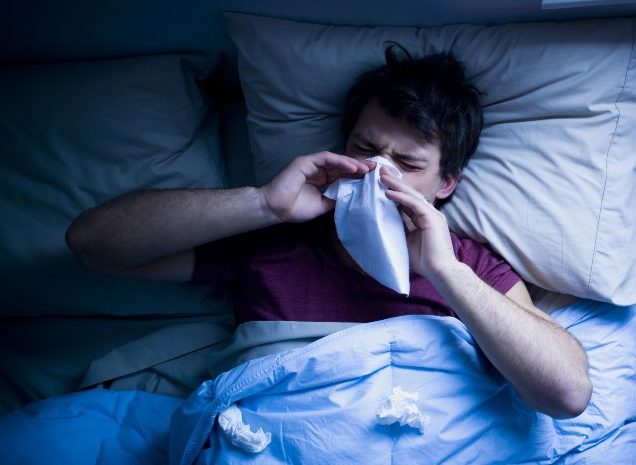5 Reasons Your Allergies Are Worse at Night
April 18 2018
Like clockwork, your seasonal allergies are back. As if a runny nose, sneezing, and itchy eyes weren’t bad enough, your allergy symptoms might also make it nearly impossible to sleep. “Allergy symptoms actually can get worse at night,” says Dr Purvi Parikh, an allergist and immunologist with Allergy & Asthma Network and Allergy & Asthma Associates of Murray Hill in New York City.
It’s not just you—and it’s not in your head. Here’s what to know about nighttime allergy symptoms when the pollen count’s high.
1. Lying down worsens congestion
Gravity is not your friend when it comes to your bedtime allergies. “When you lie down, basically everything in your nose starts dripping down your throat,” Parikh explains. Due to the anatomy of the nose and throat, that can lead to more or worse coughing, wheezing, and difficulty breathing than when you’re standing upright, she says.
Propping yourself up with some extra pillows might help ease congestion and post-nasal drip while you sleep.
2. Your bedroom is full of dust mites and mould
No, it’s not that pollen levels rise at night. (They’re actually highest in the early morning.) Your allergies might feel worse at night because now you’re adding indoor triggers into the mix. “A lot of people are allergic to things in their bedrooms,” says Parikh, like dust mites that make their home in your pillows, mattress, or box spring and mould that grows in the walls of older houses or after water damage.
“Bedrooms tend to be the most allergenic part of the home,” says Dr David Rosenstreich, director of the division of allergy and immunology in the department of medicine at Albert Einstein College of Medicine and Montefiore Medical Center in New York. “The allergies you get exposed to outside compounded by additional allergens on the inside may make symptoms worse.”
Experts recommend revamping your bedroom to rid the space of as many allergens as possible. Ditch carpeting (or vacuum it frequently), use dust mite covers for mattresses and box springs, and consider an air purifier, says Parikh. Sleep with the windows closed to minimize how much pollen makes its way into your sleep sanctuary.
3. Your pet sleeps in your bed
Another common allergen making things worse in your bedroom? Pet dander that accumulates on your carpet or comforter. Sure, furry friends make for cozy snuggle buddies, but if you’re allergic to your pet, sleeping beside each other isn’t doing you any favours.
It’s always an unpopular suggestion, she says, but Parikh tells patients to stop allowing their pets in their bed. “Keeping the animals out of the bedroom is best. Nobody listens to me, but it helps!”
4. You tracked pollen inside
If it’s not the indoor allergens making your symptoms worse, it could be the pollen you unknowingly brought inside. Pollen can linger on your skin, hair, and clothing, Parikh explains, so before bed, take a shower and put on clean pyjamas when outdoor allergies are giving you hell.
If your pet is allowed to explore the outdoors, she also picks up some pollen during her adventures—another convincing reason to keep her out of the bedroom. (Sorry!)
5. You’re alone with your thoughts…and sniffles
Why do allergies get worse at night? “Beside the fact that all illnesses feel worse at night?” quips Dr Rosenstreich. “When you’re busy during the day, you might forget about it and feel a little better,” he says. “When you’re lying in bed, most people aren’t thinking about anything else, and symptoms feel much worse.”
For that reason, nighttime is a good moment to try over-the-counter allergy meds, he says. Look for an oral antihistamine or a corticosteroid nasal spray that can help limit congestion and reduce inflammation.
This article originally appeared on Health.com
